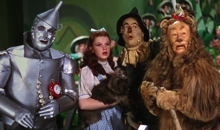Rascals case in brief
In the beginning, in 1989, more than 90 children at the Little Rascals Day Care Center in Edenton, North Carolina, accused a total of 20 adults with 429 instances of sexual abuse over a three-year period. It may have all begun with one parent’s complaint about punishment given her child.
Among the alleged perpetrators: the sheriff and mayor. But prosecutors would charge only Robin Byrum, Darlene Harris, Elizabeth “Betsy” Kelly, Robert “Bob” Kelly, Willard Scott Privott, Shelley Stone and Dawn Wilson – the Edenton 7.
Along with sodomy and beatings, allegations included a baby killed with a handgun, a child being hung upside down from a tree and being set on fire and countless other fantastic incidents involving spaceships, hot air balloons, pirate ships and trained sharks.
By the time prosecutors dropped the last charges in 1997, Little Rascals had become North Carolina’s longest and most costly criminal trial. Prosecutors kept defendants jailed in hopes at least one would turn against their supposed co-conspirators. Remarkably, none did. Another shameful record: Five defendants had to wait longer to face their accusers in court than anyone else in North Carolina history.
Between 1991 and 1997, Ofra Bikel produced three extraordinary episodes on the Little Rascals case for the PBS series “Frontline.” Although “Innocence Lost” did not deter prosecutors, it exposed their tactics and fostered nationwide skepticism and dismay.
With each passing year, the absurdity of the Little Rascals charges has become more obvious. But no admission of error has ever come from prosecutors, police, interviewers or parents. This site is devoted to the issues raised by this case.
On Facebook
Click for earlier Facebook posts archived on this site
Click to go to
Today’s random selection from the Little Rascals Day Care archives….
Click for earlier Facebook posts archived on this site
Click to go to
Today’s random selection from the Little Rascals Day Care archives….
Of mice and memory and the moral panic
July 29, 2013
“Scientists at the Massachusetts Institute of Technology have developed the ability to implant mice with false memories. The memories can be easily induced and are just as strong as real memories, physiological proof of something psychologists and lawyers have known for years.
“The findings are a serious matter. According to the Innocence Project, eyewitness testimony played a role in 75 percent of guilty verdicts eventually overturned by DNA testing after people spent years in prison. Some prisoners may even have been executed due to false eyewitness testimony. It was not because the witnesses were lying. They were just wrong, said Susumu Tonegawa, a molecular biologist and the lead author in the MIT study.
“In the longest criminal trial in American history, the McMartin family, who operated a preschool in California, was charged with multiple incidents of child abuse. After seven years and $15 million in prosecution expenses, some charges were dropped and the defendants were acquitted of others when it became clear some of the accusations were based on false memories, some possibly planted by childrens’ therapists.”
– From “Scientists Produce False Memories In Mice” by Joel N. Shurkin, Inside Science News Service (July 25, 2013)
The same day’s Guardian of London adds this response from Chris French, head of the Anomalistic Psychology Research Unit at Goldsmiths, University of London:
“Memory… is a reconstructive process which involves building a specific memory from fragments of real memory traces of the original event but also possibly including information from other sources.”
“Information from other sources” – that is, from prosecution therapists – was what contaminated the memories of child witnesses in cases such as McMartin and Little Rascals.
DA Williams to jury: Don’t consider the source
 Feb. 20, 2013
Feb. 20, 2013
“Don’t focus on the question, focus on the answer.”
– District Attorney H. P. Williams, urging jurors to ignore the leading questions that therapists asked child-witnesses to elicit accusations against Bob Kelly
“Pay no attention to that man behind the curtain.”
– The Wizard of Oz
Holocaust child-survivors needed no coaxing
 June 22, 2012
June 22, 2012
“Teen-age Holocaust victims had no trouble looking their abusers straight in the face and saying, ‘You did this to me, you monster.’ None of them, when they were younger, had to have any of their memories elicited. Nor were there embellishments of clowns throwing fire around the room.
“The author of a book on Holocaust survivors, ‘New Lives,’ had this to say: ‘I interviewed hundreds of Holocaust survivors. Would that they could forget anything. At age 4, at age 5 they remembered everything on the SS officers’ uniforms.’ ”
“The author is the Wall Street Journal’s Dorothy Rabinowitz, the first journalist to provide the same in-depth reportage about Fells Acres that ‘Frontline’ provided about Little Rascals and Abby Mann did for the McMartin trial in an HBO movie.”
– From “Abusing Justice, in the Name of Children” by Ed Siegel in the Boston Globe (September 8, 1995)
Prosecutors followed playbook from 16th century
 Nov. 4, 2011
Nov. 4, 2011
“A mere suspicion of witchcraft justifies the immediate arrest and torture of the suspected person….
“A prisoner may be promised immunity or reduced punishment if he accuses his accomplices.”
– From “On the Demon-Mania of Witches” by Jean Bodin, French judge (1580)











0 CommentsComment on Facebook